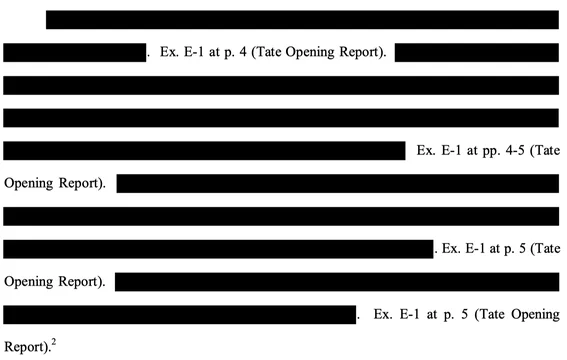
The blog has many stories about the perils of over-redaction. Time and again the Court has chastised the parties for attempting to redact quotidian bits of agreements and correspondence, noting that the Court is not a "Star chamber."
Today's case, Inkit, Inc. v. Airslate, Inc., C.A. No. 23-793-RGA (D. Del. Mar. 26, 2025), shows that it's also possible to redact too little. The parties thereby had a long-running dispute about trademark infringement which ultimately evolved into a dispute about whether the defendant had violated a settlement agreement which resolved an earlier case between the parties.
That settlement agreement—like literally every other one I've ever seen—contained a confidentiality provision. The issue that arose is that, in filing its claim to enforce the agreement, the plaintiff filed the entire agreement on the public docket, redacting only banking information. The terms and amount remained public.
The defendant, Airslate, thus counterclaimed for breach of the confidentiality provision. Inkit then moved for summary judgment on that claim, arguing that Airslate could not prove any damages resulting from the breach.
Airslate argued that the disclosure caused them reputational damage, relying largely on the testimony of their in-house attorney at the time:
[B]y making the terms of the settlement agreement public, the plaintiff exposed information that we agreed to keep confidential. So the damages would be reputational damages .... [F]or example, the idea of not bidding on Inkit's words is a unique thing that we, to my knowledge, hadn't agreed to do with anybody. So anyone who reads that could benefit from knowing that that's something that airSlate could agree to, as well as the fact that there's money paid. One could utilize that and think that if they file a similar lawsuit, whether it has merit or not, they might be able to get a similar result.
Id. at 13 (quoting D.I. 136-1 at 11).
Judge Andrews ultimately found that there was a dispute of material fact as to damages and denied the motion for summary judgment. For my money, the interesting thing here is how this slice of testimony compares to what we usually see parties submit in support of their redactions. I'd be interested to see if this might be sufficient to warrant sealing similar information before Judge Andrews, or if the result would be different outside of the context of a motion for summary judgment.
If you enjoyed this post, consider subscribing to receive free e-mail updates about new posts.




